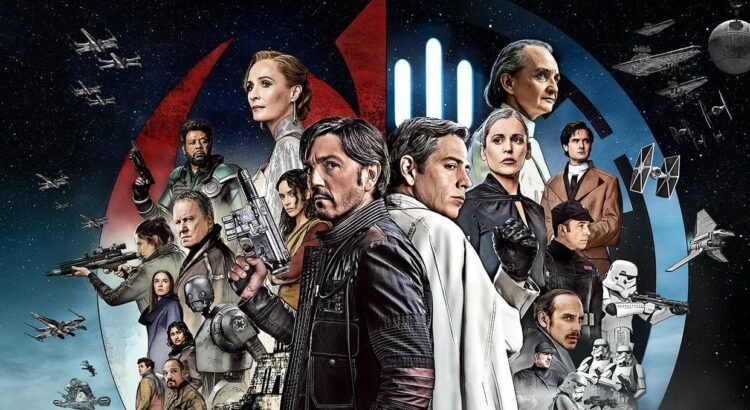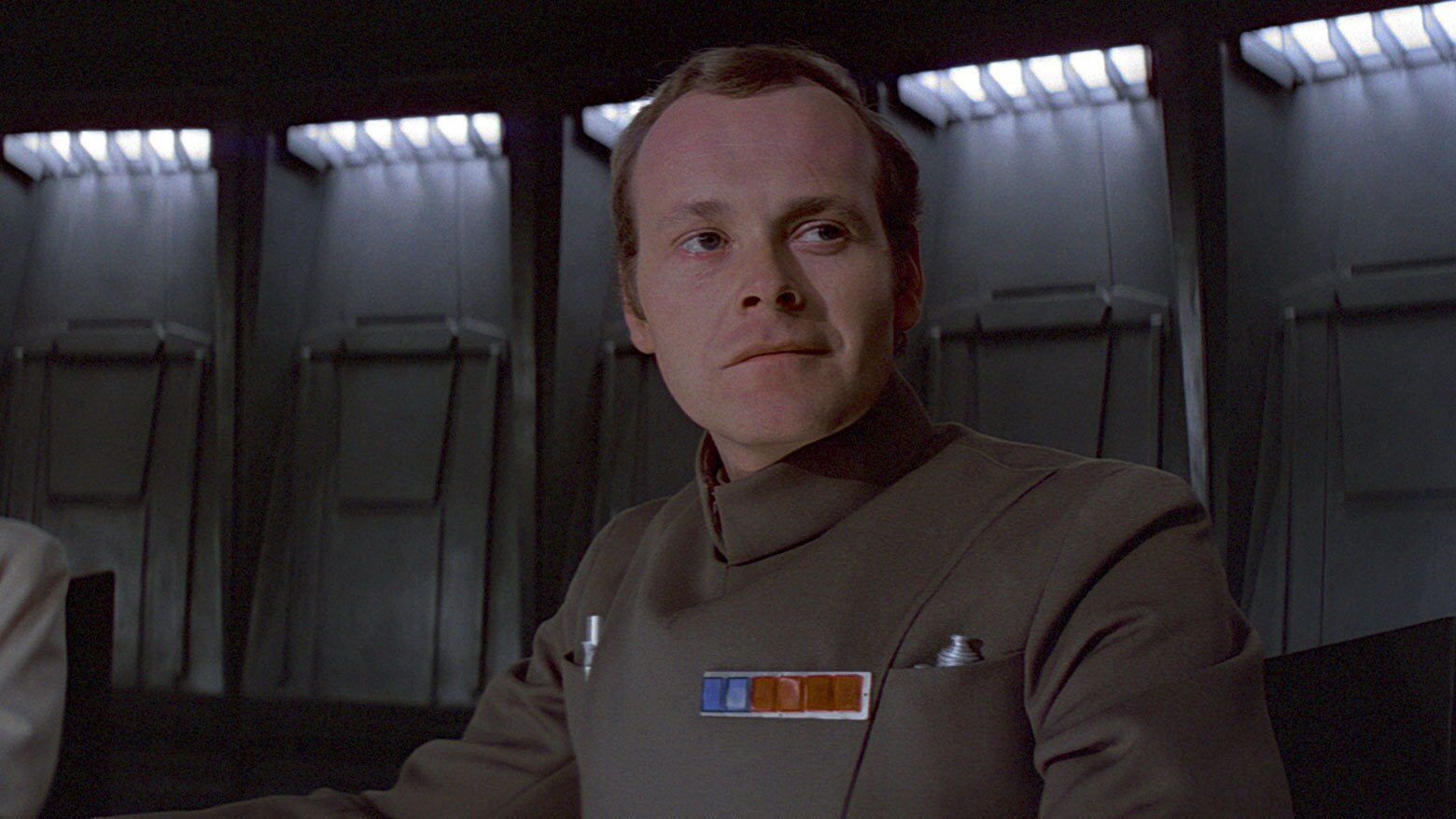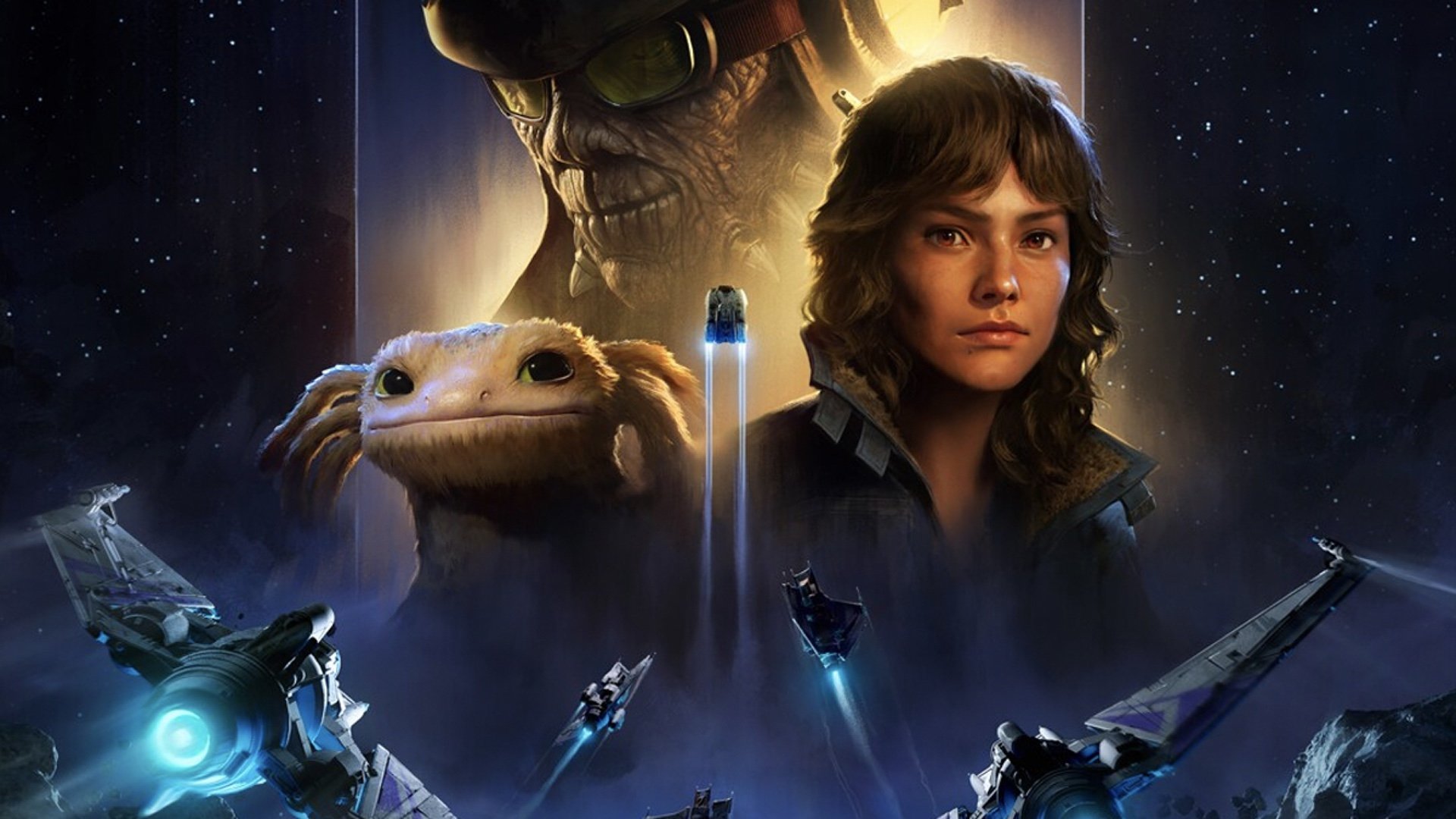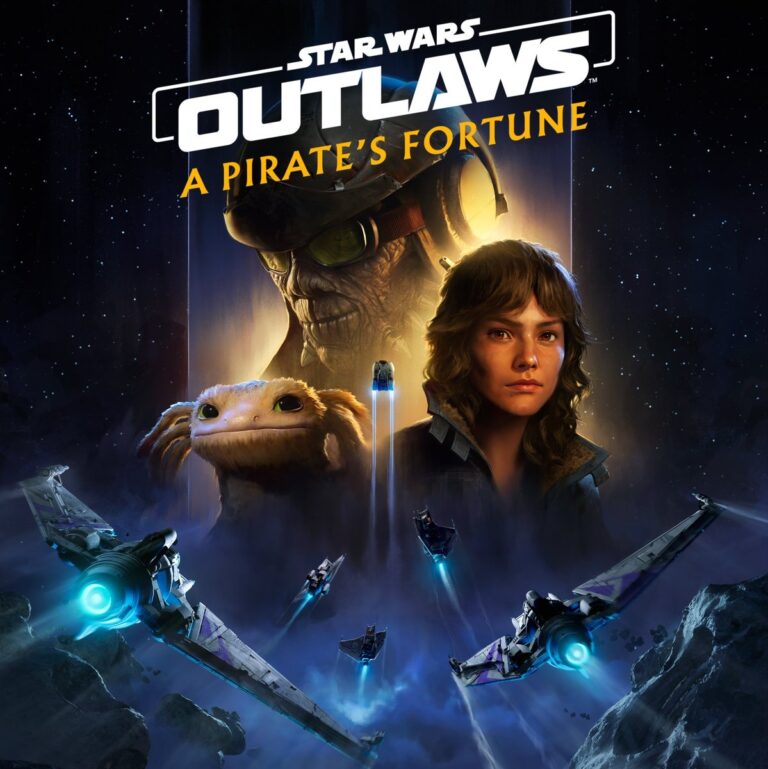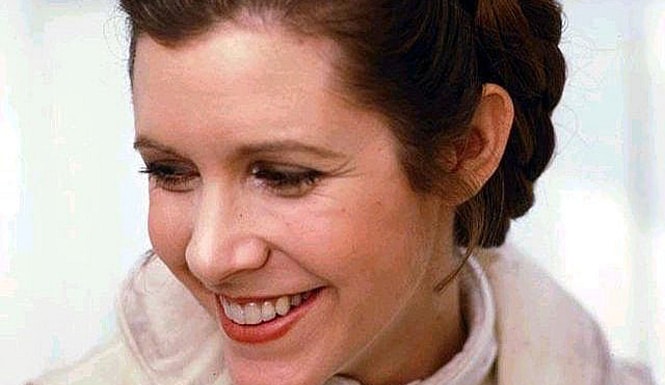May 2025 – Andor Season 2 has achieved something unprecedented in television history: five consecutive episodes each rated 9.5 or higher on IMDb. This stunning streak of near-perfect scores has ignited spirited debates among fans and critics. Could Andor be the best TV series ever? In this article, we’ll explore Andor Season 2’s record-breaking acclaim and how it stacks up against other highly regarded shows like Game of Thrones and Breaking Bad, as well as fellow Star Wars series The Mandalorian and Ahsoka. We’ll also take a closer look at Lucasfilm president Kathleen Kennedy – examining her contributions and controversies – and discuss whether, considering her age and the evolving cultural shift in Star Wars storytelling, it might be time for new leadership at Lucasfilm. Let’s dive in (lightsabers at the ready)!
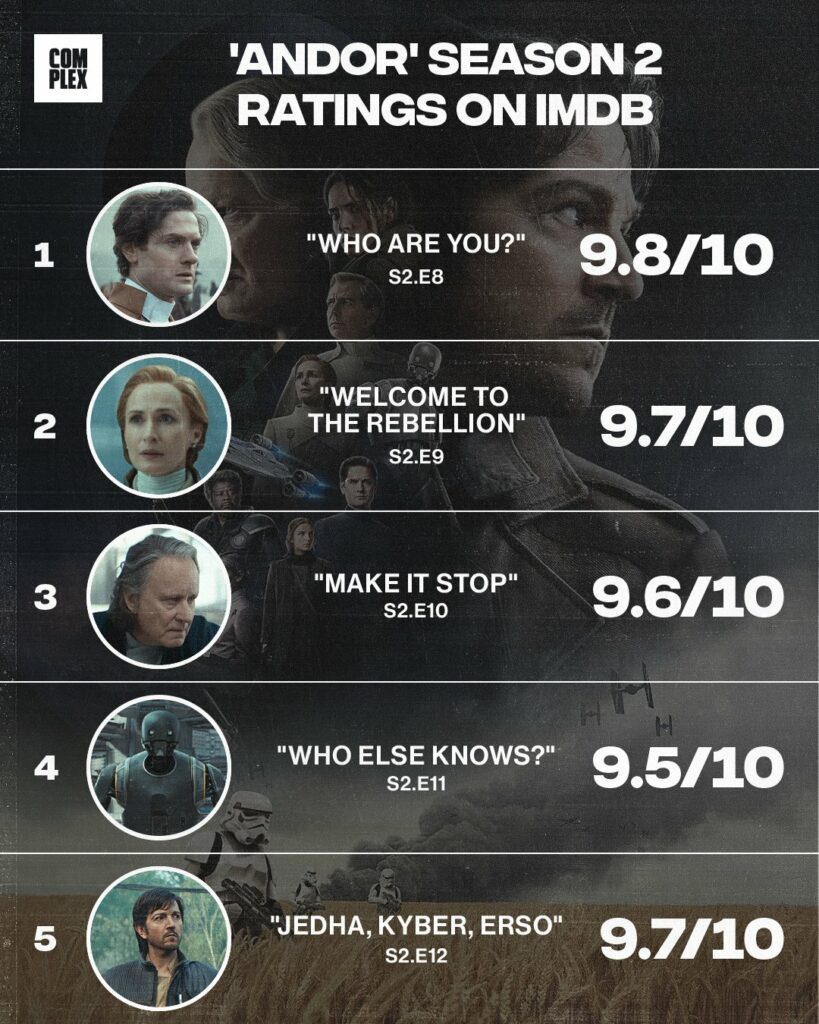
Andor Season 2’s Record-Breaking IMDb Ratings
Andor Season 2’s unprecedented IMDb ratings streak: This graphic highlights how Episodes 8 through 12 of Season 2 each scored 9.5 or above on IMDb, a feat no other TV show has achieved in five consecutive episodes. The episode titles – “Who Are You?” (S2E8), “Welcome to the Rebellion” (S2E9), “Make It Stop” (S2E10), “Who Else Knows?” (S2E11), and “Jedha, Kyber, Erso” (S2E12) – earned ratings of 9.8, 9.7, 9.6, 9.5, and 9.7 respectively. Such consistently high audience scores underscore the exceptional writing, acting, and production quality of Andor, fueling debates about whether it ranks among the greatest TV series of all time.
Five straight episodes with 9.5+/10 IMDb ratings is not just rare – it’s historic. In fact, Andor Season 2 is reportedly the first TV series ever to pull off this feat. For context, even beloved shows known for their high ratings never managed five 9.5+ episodes in a row. This remarkable achievement “smashes records and redefines what fans may expect” from a Star Wars tale. It speaks to the consistency of quality in Andor’s second season – a season that critics say delivers on every front and “ends with a bang”.
The critical reception backs up the hype. Andor Season 2 is currently Certified Fresh on Rotten Tomatoes at about 97–98% positive reviews, indicating near-universal acclaim from critics. Early reviews heralded the season as “triumphant… top-tier Star Wars” and even “the gold standard of what modern Star Wars can be”. In other words, Andor isn’t just pleasing die-hard Star Wars fans – it’s impressing general audiences and critics with its high-caliber storytelling. From its nuanced political intrigue to its character-driven drama, Season 2 has made an “indelible impression on television history” with a maturity and depth rarely seen in the franchise.
So, with Andor Season 2 shattering records and earning rave reviews, the question naturally arises: Could this be one of the best TV series ever? Let’s compare Andor’s strengths to some other heavyweight shows to put its achievement in perspective.
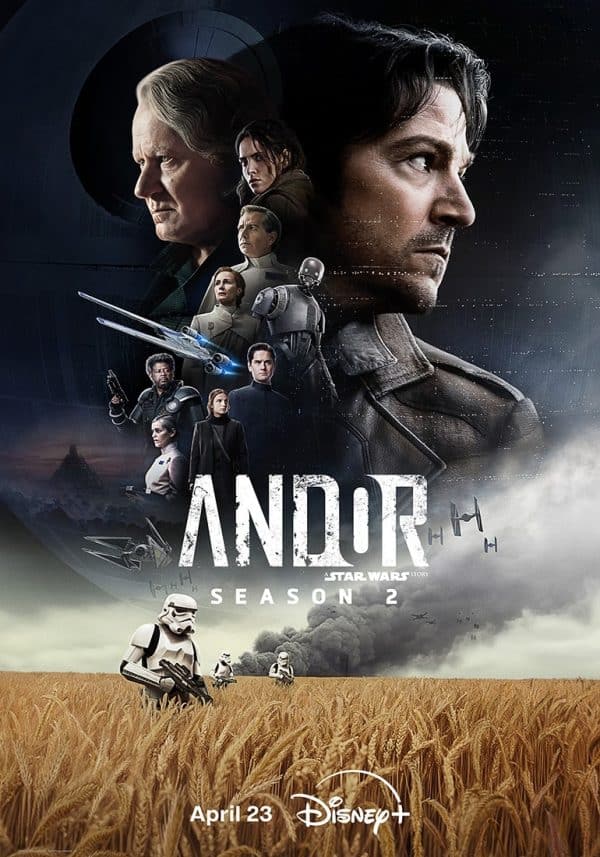
Is Andor Season 2 the Best TV Series Ever?
Calling any show “the best ever” is a bold claim – one that Andor’s most enthusiastic supporters have started to ponder, thanks to its stellar second season. To approach this question, it’s useful to compare Andor with other series often in the “greatest of all time” conversation. Let’s see how Andor Season 2 measures up against some modern TV titans and fan-favorites, while keeping our tone as neutral (and human) as a protocol droid negotiating a trade dispute.
- Game of Thrones: HBO’s fantasy epic set the standard for prestige television in the 2010s with its massive scale, shocking twists, and cinematic production values. At its peak, Game of Thrones delivered some of the most highly rated episodes ever – for instance, “Battle of the Bastards” and “The Winds of Winter” both scored around 9.9/10 on IMDb upon release. However, Game of Thrones also became infamous for an uneven finish; its final season left many fans divided. In contrast, Andor has maintained a tighter consistency (admittedly across fewer episodes). Season 2 of Andor doesn’t have dozens of characters or sprawling battles like GoT, but it excels in focused storytelling and character development. Every episode in Andor’s latest season feels purposeful, with “nuanced and intricate” writing and acting that keep the stakes high. While Game of Thrones in its prime was a cultural phenomenon, Andor has the advantage of never having dropped the ball on narrative quality (so far). Of course, genre and scope differ – space espionage vs. dragon-filled fantasy – but on the metric of audience scores and narrative tightness, Andor Season 2 arguably achieved a streak even Westeros couldn’t match.
- Breaking Bad: Frequently cited as one of the greatest TV dramas of all time, AMC’s Breaking Bad also built a reputation on consistent quality and jaw-dropping episodes. The show’s final run of episodes (e.g., the legendary “Ozymandias”) earned perfect 10/10 fan ratings, and Breaking Bad’s overall IMDb average is towering. Did it ever string together five episodes above 9.5 in a row? Not quite – even this juggernaut had an occasional “very good” episode amidst the masterpieces. Andor Season 2’s five-episode 9.5+ streak edges into territory Breaking Bad didn’t officially reach, though one could argue that Breaking Bad’s entire final season was an uninterrupted triumph in storytelling. When comparing the two, Breaking Bad is a modern-set crime saga with a complete story arc, whereas Andor is a prequel set in a galaxy far, far away, building on decades of Star Wars lore. What Andor shares with Vince Gilligan’s opus is meticulous writing – every plot development in Season 2 feels earned, and the character arcs (Cassian Andor’s especially) are as compelling as any antihero journey. Some fans point out that Andor achieves a Breaking Bad-level of tension and payoff, but within the Star Wars universe – something previously thought impossible. While “best ever” is subjective, it’s fair to say Andor Season 2 has entered the same league as these giants in terms of quality, even if its cultural footprint is smaller than Walter White’s hat or the Iron Throne (give it time!).
- The Mandalorian: Among Star Wars TV series, The Mandalorian has been the flagship show, known for its adventurous spirit and the irresistibly cute Baby Yoda (Grogu). The Mandalorian delivered some truly crowd-pleasing high points – for example, the Season 2 finale “The Rescue” (Luke Skywalker’s surprise arrival) earned a whopping 9.8/10 IMDb rating from fans. However, those highs haven’t been as sustained week-to-week. Andor differs in tone – it trades wholesome bounty-hunter escapades for a gritty, slow-burn rebellion story. Despite being less traditional Star Wars fare (no Jedi, minimal fan service), Andor succeeded in captivating the audience purely with its storytelling. The show “doesn’t require reliance on the franchise’s conventional components” like cameos or familiar aliens, which many other Star Wars shows lean on. Even The Mandalorian has a few “filler” episodes and some uneven pacing, whereas Andor is laser-focused on plot and character. Importantly, Andor’s record-breaking ratings streak outshines The Mandalorian – no Mandalorian season has had five episodes in a row above 9.5 on IMDb (Season 2 came closest, but even its excellent run was spottier). In short, The Mandalorian remains a fan-favorite with iconic moments, but Andor has raised the bar for consistent storytelling quality in the Star Wars TV realm.
- Ahsoka: Another recent Star Wars series, Ahsoka (2023) delighted long-time fans by continuing the story of Anakin Skywalker’s former padawan. It had moments of greatness – notably Episode 5 “Shadow Warrior”, where Anakin returns in a vision, initially clocked a 9.5/10 rating on IMDb during the hype peak. Yet, like many shows, Ahsoka’s ratings fluctuated (that same episode later settled around 9.0 as more votes came in). Overall, Ahsoka was well-received (especially by animation fans), but it didn’t reach the near-universal critical acclaim that Andor has. Andor Season 2, with its 97% Rotten Tomatoes score and consistent IMDb dominance, has been hailed as “some of the very best Star Wars, period” by reviewers. Where Ahsoka sometimes relied on viewers’ nostalgia and knowledge of animated series, Andor stood on its own as a tight, mature political thriller that anyone could follow. It’s a different flavor of Star Wars – one that trades lightsabers for moral ambiguity – and it has clearly struck a chord. In the pantheon of Star Wars television, even the strong performances of The Mandalorian, Ahsoka, or Obi-Wan Kenobi haven’t matched the critical heights of Andor. As one critic put it, Andor Season 2 “cements itself as the gold standard of what modern Star Wars can be”– high praise in a franchise that’s over 40 years old.
In considering Andor’s place in TV history, a neutral observer would note that “best ever” is ultimately subjective. Different genres have different strengths: fantasy epics, crime dramas, sci-fi adventures – each capture audiences in unique ways. What we can say is that Andor Season 2 has achieved a level of quality and consistency that few shows (and no other Star Wars series) have reached. It’s in the conversation with the greats. Some reviewers have even declared Andor “the best Star Wars project ever made”, and a “stunning example of what Star Wars can be at its very best”. Does that make it the best TV series of all time? Perhaps that crown is impossible to definitively award – but Andor has certainly earned a place near the top of the list, and its record-breaking Season 2 gives future TV creators a new benchmark to aspire to.
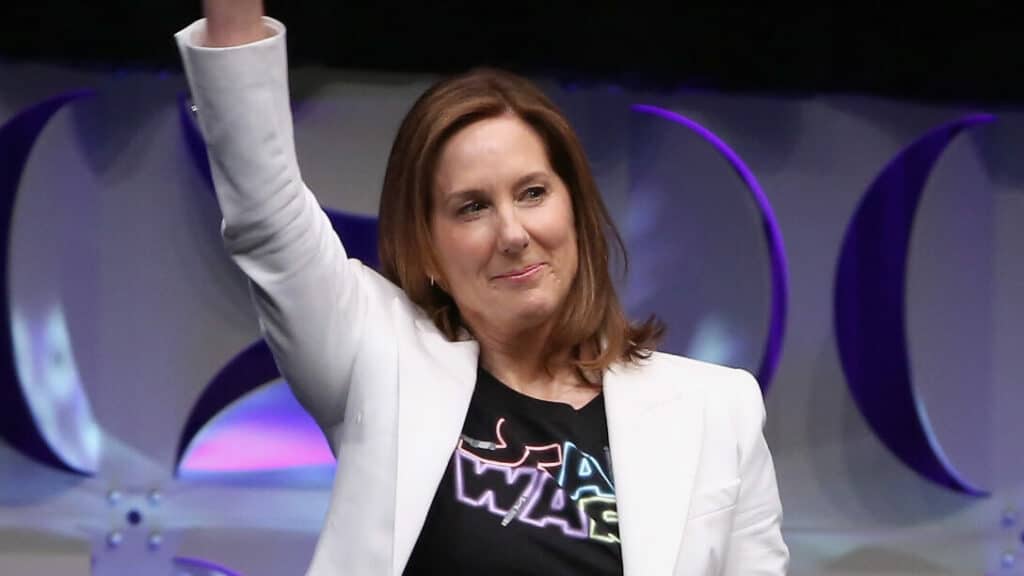
Kathleen Kennedy’s Leadership at Lucasfilm: Contributions and Controversies
Shifting gears from the show to the behind-the-scenes: let’s talk about Kathleen Kennedy, the president of Lucasfilm. Kennedy has been one of Hollywood’s most successful producers, with a career spanning classics like E.T., Jurassic Park, and Indiana Jones. She took the helm of Lucasfilm after Disney acquired the company in 2012, overseeing the entire Star Wars resurgence over the past decade. Her tenure has seen Star Wars explode in content: five new films (the sequel trilogy and two spin-offs), multiple Disney+ series, animated shows, and a general expansion of the galaxy far, far away. By the numbers, many of these projects were hits – The Force Awakens (2015), which she produced, became the highest-grossing Star Wars film domestically, and Rogue One (2016) was a massive success as well. Under her leadership, Star Wars has remained a dominant pop culture force, and she’s greenlit creative risks like Andor that have broadened what Star Wars can be.
However, leading the franchise hasn’t been all sunshine on Tatooine. Controversies and fan criticisms have followed Kennedy’s tenure like a pesky shadow. One major critique is the handling of the sequel trilogy’s story: the trilogy lacked a clearly mapped-out narrative from the start, resulting in some jarring tonal shifts (compare the very different approaches of The Last Jedi vs. The Rise of Skywalker). Even Kennedy’s admirers admit that not having a cohesive plan for the trilogy was a mistake – a point that has been called “one of the most baffling creative decisions” in modern blockbuster cinema by some analysts. Additionally, there have been director shake-ups and project cancellations that garnered bad press. High-profile examples include changing directors mid-production (Solo: A Star Wars Story famously replaced its directors during filming) and scrapping announced projects (like an early Boba Fett film, or movies from certain creators that were trumpeted and then quietly shelved). These incidents led to accusations of “creative interference and project cancellations” that “tarnished Lucasfilm’s reputation” in the eyes of many fans.
Kennedy also faced the challenge of fan expectations – which, in the Star Wars universe, can be as intense as a supernova. Some fans have accused her of pushing certain creative agendas or “injecting politics” into Star Wars in ways they didn’t like. It’s worth noting that Star Wars has always had political themes (George Lucas himself said the Empire was partly inspired by historical authoritarian regimes), so in many cases these complaints were rooted in personal biases or even sexist attitudes toward a female executive. Indeed, the discourse around Kathleen Kennedy often became vitriolic: a segment of the fandom has spent years calling for her removal, sometimes for any new Star Wars thing they disliked. As The Economic Times summarized, some of the criticism veered into “unwarranted territory, fueled by false rumors and, at times, sexist sentiments”. Despite the noise, Kennedy has remained at the helm, and Lucasfilm under her has delivered successful series like The Mandalorian (which she championed by hiring Jon Favreau) and critical darlings like Andor (which she greenlit with Tony Gilroy at the reins).
To be fair and neutral: Kathleen Kennedy’s legacy is a mixed bag of significant triumphs and notable missteps. On one hand, she oversaw an era of unprecedented Star Wars content expansion – “multiple films, television series, and animated projects have flourished, capturing the essence of the galaxy” during her tenure. She’s been a trailblazer as one of the few women to ever run a major Hollywood studio, and her business acumen kept Star Wars commercially strong (all four Disney-produced Star Wars movies released under her watch grossed over $1 billion globally, except Solo). On the other hand, some decisions – like the lack of a unified vision for the sequel films – left parts of the fanbase feeling disillusioned. The franchise also experienced a bit of overexposure: between 2015 and 2019, we got five Star Wars films (an unprecedented pace), and by the time Solo hit theaters in 2018, audiences seemed fatigued (it became the first Star Wars movie to underperform at the box office). Critics argued that this release strategy “led to an over-exposure of the Star Wars brand, diluting its once-special anticipation”. Kennedy acknowledged this in later interviews, pivoting to a strategy of “event-izing” future films – i.e. making Star Wars movies feel like big events again, by spacing them out more. Meanwhile, the Disney+ era brought its own hurdles, with some series receiving mixed reception (The Book of Boba Fett or Obi-Wan Kenobi had a more lukewarm response, for example). Still, under Kennedy’s watch, the franchise took some bold creative swings – and Andor is the prime example, proving that audiences do crave well-written, risk-taking stories in this universe.
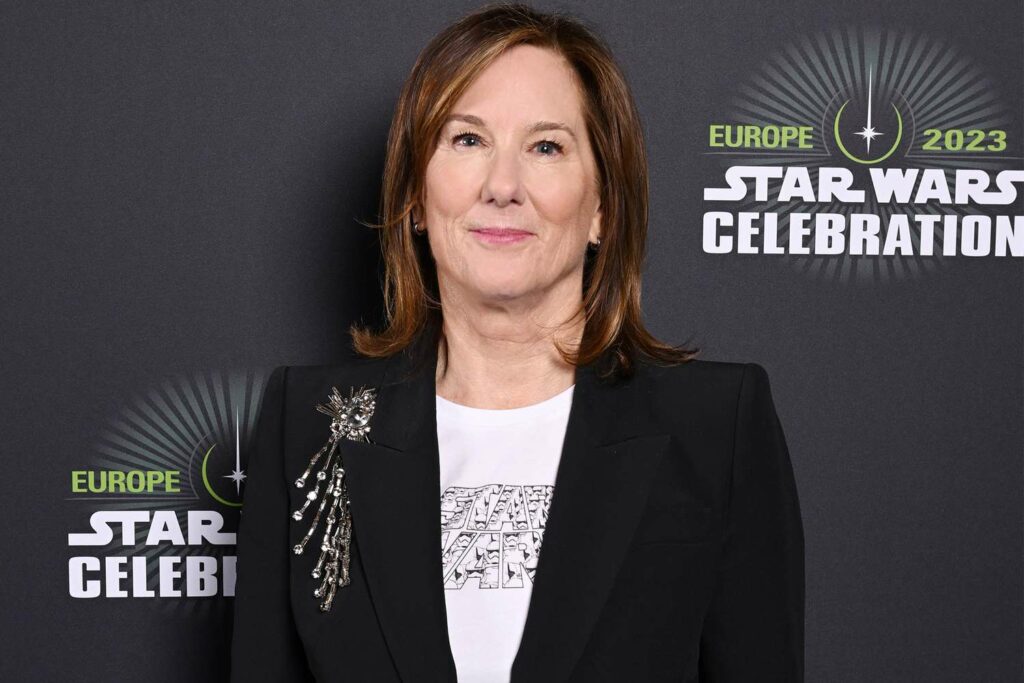
Is It Time for Kathleen Kennedy to Step Down? (And What’s Next for Star Wars)
Now in her early 70s, Kathleen Kennedy has led Lucasfilm for over a decade. With such a long and influential tenure, it’s natural to ask: Is it time for new leadership at Lucasfilm? This question has two facets – one practical (her age and contract status) and one creative (the current cultural shift in Star Wars storytelling).
On the practical side, there have been numerous reports and rumors about Kennedy’s future. Recent reputable reports suggest that Kathleen Kennedy plans to retire by the end of 2025 when her current contract concludes. In fact, multiple industry trades (like Variety and Puck News) reported earlier this year that she’s discussing succession plans with Disney’s Bob Iger, even if nothing has been officially announced yet. Kennedy herself publicly pushed back on some premature “exit” rumors, indicating she’s not stepping down immediately – but reading the tea leaves, it appears the end of her Lucasfilm era is on the horizon. After 13 years at the helm and an extraordinary 40-year producing career, no one would blame her for wanting to retire and enjoy a well-earned break on the beaches of Scarif (preferably without Imperial troops this time).
The creative facet is perhaps even more interesting. Star Wars storytelling has been undergoing a cultural shift. The success of Andor – with its grown-up tone, political nuance, and slower, serialized burn – signals that the franchise can evolve beyond the pulpy adventure style (as fun as that is) and tackle more sophisticated narratives. The fandom itself is diversifying: there are lifelong fans from the original trilogy era, prequel lovers, new generations coming in via animation or Disney+ shows, etc. Balancing all these audiences requires a nuanced vision. Some of the recent best-received Star Wars content (Andor, The Mandalorian Season 1, The Clone Wars final season, etc.) succeeded by respecting the franchise’s core themes while also breaking new ground in style or focus. There’s a growing sense that the franchise benefits from storytellers who deeply understand Star Wars lore and are willing to try new approaches.
So what kind of leadership does Star Wars need going forward? Many fans feel it’s time for a creative lead with a strong, unified vision – someone who can be to Star Wars what Kevin Feige has been to Marvel (an often-cited analogy). Interestingly, Lucasfilm has already taken steps in this direction. In late 2023, Dave Filoni – a veteran creative who apprenticed under George Lucas on Clone Wars and has co-created shows like Rebels and The Mandalorian – was promoted to Chief Creative Officer of Lucasfilm. Filoni’s new role means he will “oversee all future Star Wars storytelling” across film, TV, animation, and more. This is a significant move; Filoni is widely respected by fans for his deep understanding of the Star Wars mythos (he’s often seen as the spiritual successor to Lucas in terms of knowledge). Pairing him with strong producers and perhaps a new president focused on the business side could form a leadership team that carries Star Wars into its next era.
If Kennedy steps down in the next couple of years, her successor will have big shoes to fill – and also a big opportunity. The Star Wars franchise might benefit from fresh energy and perspective at the top. The next leader will need to learn from the past decade’s lessons: namely, plan ahead (especially for any new film trilogies or interconnected sagas), avoid over-saturating the market (quality over quantity should be the mantra, so that each release feels like an event), and continue to take creative risks like Andor. It’s a tricky balance: Star Wars is beloved partly for its familiar elements (the Force, Jedi vs. Sith, etc.), yet it can’t just rehash the same formula without evolving. The future likely calls for a blend of new and old – new kinds of stories and diverse creators, but guided by a respect for what came before.
Publicly, Kathleen Kennedy has expressed a commitment to this balance. She’s spoken about making upcoming films “stand-alone event moments” and giving filmmakers room to innovate. In recent announcements, Lucasfilm revealed a slate of future projects: from a Dawn of the Jedi film (set 25,000 years in the past) to a New Jedi Order film with Rey, to a climactic crossover movie for the Mandalorian era. These suggest a willingness to experiment with timeline and genre. The next leadership will inherit these plans and the task of executing them in a coherent way.
In a nutshell, yes – we may be approaching the natural handoff point for Kathleen Kennedy. Even her admirers acknowledge that an infusion of new leadership could be healthy for Star Wars after years of ups and downs. That doesn’t mean erasing her legacy; rather, it means building on the foundation she laid (the good and the bad) to guide Star Wars into its next chapter. The franchise’s longevity has always been rooted in hope – “Rebellions are built on hope,” as a wise character once said – and there’s hope among fans that a post-Kennedy era could bring a renaissance of carefully planned, creatively bold storytelling in the galaxy far, far away.
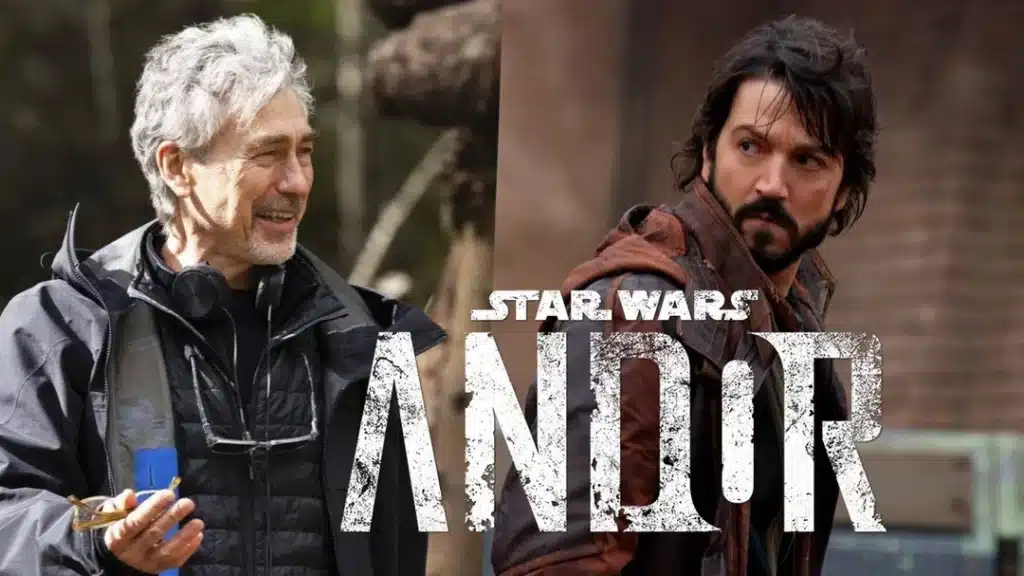
Conclusion
Andor Season 2 has proven that stellar storytelling can make even a familiar galaxy feel brand new. Its historic run of five 9.5+ rated episodes in a row is more than just a trivia fact – it’s a statement that quality and consistency can win the day, even in an age of peak TV competition. Whether or not one crowns Andor “the best TV series ever,” there’s no doubt it has earned acclaim on par with the greats, and set a new high bar for the Star Wars franchise and streaming series in general. Fans of Star Wars movies, books, comics, and games now have concrete proof that this universe can deliver adult, nuanced drama without losing its identity.
At the same time, the accomplishment of Andor shines a spotlight on Lucasfilm’s leadership. Kathleen Kennedy’s tenure has shepherded Star Wars through a period of remarkable output, for better or worse. As Season 2 of Andor cements itself as “a brilliant example of how outstanding television can be produced even in a galaxy far, far away”, it also perhaps signals the kind of creative vision the franchise needs going forward. The coming years will be pivotal. If Kennedy indeed passes the torch, the hope is that the new leadership (be it Dave Filoni in creative control, along with whatever producer steps up) can learn from the past, leverage what’s working (hello, Andor), and steer Star Wars into a future as bright as a twin-sun sunrise on Tatooine.
One thing’s for sure: it’s a thrilling time to be a Star Wars fan. We have a contender for one of the greatest series ever in Andor, and an evolving saga behind the scenes at Lucasfilm. As we look ahead, we’ll keep our fandom helmets on, stay cautiously optimistic, and remember not to overhype – this is the way.
Sources:
- Tanisha Chhabra, “Andor Season 2 makes live action TV history with 5 consecutive high rated episodes,” SoapCentral – Andor sets a record with five episodes in a row rated 9.5 or above on IMDbsoapcentral.comsoapcentral.com.
- Christopher Campbell, “Andor: Season 2 First Reviews – Some of the Best Star Wars Storytelling Ever,” Rotten Tomatoes (Editorial), Apr. 21, 2025 – Early critic reviews praise Andor Season 2 as top-tier Star Wars, cementing it as a franchise high pointeditorial.rottentomatoes.comeditorial.rottentomatoes.com.
- IMDb – User ratings for various episodes and series for comparison: The Mandalorian Chapter 16 (“The Rescue”) rated 9.8/10imdb.com; Ahsoka Episode 5 initially around 9.5/10facebook.com; Breaking Bad top episodes (“Ozymandias,” “Felina,” etc.) rated 9.9–10editorial.rottentomatoes.com.
- Rotten Tomatoes – Scoreboard for Andor Season 2 (97–98% positive, Certified Fresh)starwarsnewsnet.com.
- David Crow, “Kathleen Kennedy’s Legacy Is More Than Just Star Wars,” Den of Geek, Feb. 25, 2025 – Background on Kennedy’s career and reports of her potential retirement at the end of 2025denofgeek.comdenofgeek.com.
- “Who is Kathleen Kennedy and what led her to helm Star Wars? Know about her controversies and career,” The Economic Times (India), Jan. 16, 2024 – Overview of Kennedy’s tenure, highlighting successes, controversies (creative interference, over-exposure), and her legacym.economictimes.comm.economictimes.com.
- Ground News aggregation – Coverage of reports that Kathleen Kennedy will retire by 2025, succession planning with Bob Iger, and Kennedy’s response to rumorsdenofgeek.comforbes.com.
- Lucasfilm official announcement via Star Wars News Net, Nov. 2023 – Dave Filoni promoted to Chief Creative Officer of Lucasfilm to oversee future Star Wars storytellingstarwarsnewsnet.com.


